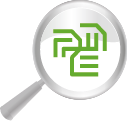Although sustainability is often discussed solely in ecological terms, it cannot be disconnected from the way humans behave in their social environment. This article presents a theoretical approach toward sustainability that takes a human behavior and knowledge view on sustainability as a starting point. This approach requires that human behavior should change, individually and collectively, in order to achieve sustainability. Knowledge is identified as the driving force behind human behavior and its effect on the ecological and social environment. In connecting knowledge with sustainability, two concepts are introduced: knowledge of sustainability (KoS), which refers to the sustainability content of knowledge, and sustainability of knowledge (SoK), which denotes the dynamics of the continuing process of knowledge creation and application. To apply SoK and KoS, we argue that a cognitive interpretation of human behavior should be formulated within a knowledge management approach that incorporates the stages of knowledge creation, integration, and application and that ensures the critical evaluation of created knowledge. In order to show that our new approach is practical, we use existing research from the Dutch starch potato industry to reformulate possibilities for the enhancement of sustainability in terms of KoS and SoK. In addition, the research led to the development of a mechanism for evaluating knowledge. Group interaction, information technology, and decision support systems are used to realize knowledge integration. The combination of conceptual design and domain of application is common in the engineering sciences, where a design methodology is used to make the steps from conceptual design to functional design and technical implementation. A conceptual design may show ways to improve existing practices, which in turn might result in superior practices. Of course, it is necessary to empirically test the interventions in reality. For AGROBIOKON that has not been done, yet.
- Content Type Journal Article
- Pages 8-22
- DOI 10.2753/IMO0020-8825400301
- Authors
- Niels R. Faber, Faculty of Economics and Business, University of Groningen, Groningen, Netherlands
- Kristian Peters, Faculty of Economics and Business, University of Groningen, Groningen, Netherlands
- Laura Maruster, Faculty of Economics and Business, University of Groningen, Groningen, Netherlands
- Rob van Haren, Faculty of Economics and Business, University of Groningen, Groningen, Netherlands
- René Jorna, Faculty of Economics and Business, University of Groningen, Groningen, Netherlands
















